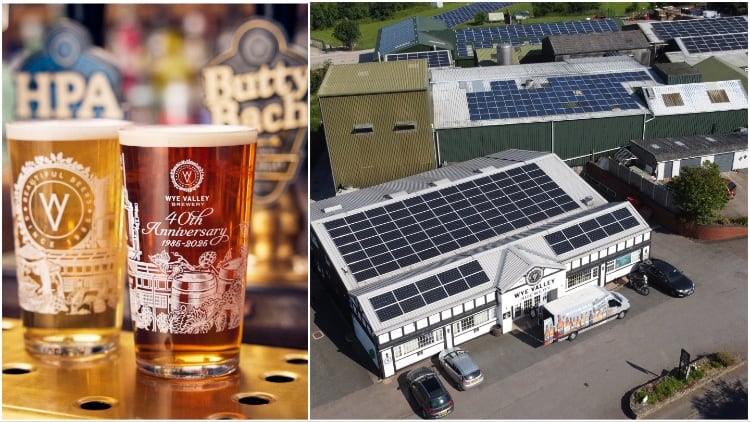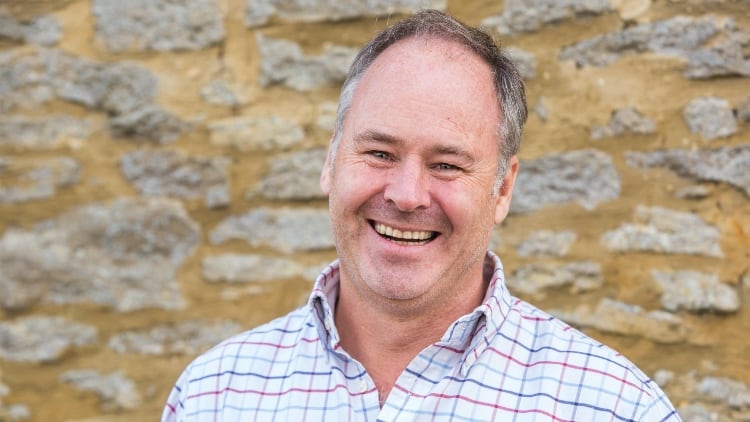The Herefordshire-based business, led by managing director Vernon Amor, has enjoyed the busiest year on the brewing side of its proud 40-year history.
Amor told The Morning Advertiser its seven wet-led pubs – one managed, five tenanted and one leased – have all fared well too in the past year but it has been tough and continues to be that way.
In short-terms plans, he said: “We’re not planning on any more pub acquisitions but never say never if the right opportunity comes up.
“What is going to be happening at Wye Valley Brewery over the next three to five years is we’re about to embark on what’s our biggest ever capital investment plan in 40 years, which involves building a whole new brewhouse, building a new visitor centre and new offices and various other things as well.”
Amor explained the brewery is reaching full capacity in its current brewing site and the business now has an opportunity to build a new brewhouse that will further improve quality, along with improving energy efficiency and sustainability.
“I’d like to think that, certainly, in five years it will be complete but we’ve got to maintain full production at full capacity while all this is going on at our site – so it’s going to be a bit of a challenge,” he added.
40th anniversary
Amor confirmed the new brewhouse would be on the current Stoke Lacy site and added there are pluses and minuses of being located in a rural area with lots of space being a definite bonus.
He said: “It would be easier in some way to have a whole new site somewhere else but having a rural location gives a better quality of life and we don’t want to move.”
The move coincides with the celebratory aspect of Wye Valley Brewery being 40 this year and there is plenty planned for the event in September.
There will be a big trade party for all its trade customers and some of its key suppliers too and another event for the staff, family and friends, and Amor joked: “We’re proverbially organising a p**s-up in a brewery, but on a grand scale!”

On the difficulties in trading, he explained: “You have to give people a reason to come into the pub and so with our pubs – the leased and tenanted ones – we operate what I would call a very loose tie, as in by and large, we expect them to sell our cask ales but for everything else they can sell what they want to.
“They’re not tied on anything else and we don’t over-rent them. Pubs have been desperately over-rented and if any of our tenants or leaseholders do then good luck to them because they’ve earned it.
“You have to give operators an opportunity to make money but I also believe that makes good business sense because in the long term, you’ll have a stable business and not have a revolving door of people that come in for a year and can’t make it work and then go bust and then someone else comes in.”
Business rates are ‘archaic’
Although having never been a licensee, Amor is more than aware of the difficulties publicans have and stated what he thinks the Government needs to do to help the industry.
“I’m not a party political animal but our sectors of brewing and pubs is desperately overtaxed and business rates really needs a proper look at,” he said. “I mean, how archaic are the business rates affecting pubs?
“They’ve really got to look at business rates for pubs and not just tinkering at the edges, it needs a massive overhaul particularly when compared to other businesses such as online retailers who ought to be paying their fair share, which I don’t think they are.”
Amor said with beer excise duty, VAT and employers’ national insurance, each member of staff at Wye Valley Brewery, is contributing £133,000 to HMRC – and that’s before personal income tax. However, he said it is pubs that are getting an even rawer deal meaning the business rates overhaul is desperately needed.
“Despite all of those things, I do remain optimistic. Every year it gets tougher and tougher, the beer market shrinks and, per capita, consumption of beer is dwindling, particularly in the on-trade.
“As long as we maintain our good old-fashioned values, which is looking after our customers, maintaining beer quality, we still meet our customers face to face and deliver our beer and it’s that human interaction that is key.
“As seen in the Beer Report, although younger generations are drinking less, there’s been an uptick in the number of younger drinkers trying cask ale. That could be down to price, which is understandable but there’s also something of a back story because often cask ale is now in the hands of small regional brewers like us so it has local credentials, which is what [younger people] are after. It almost always uses British ingredients too so there are the environmental credentials.
“So long as we can keep getting that message out to our customers, then they will remain… I’m a glass half full man.”





